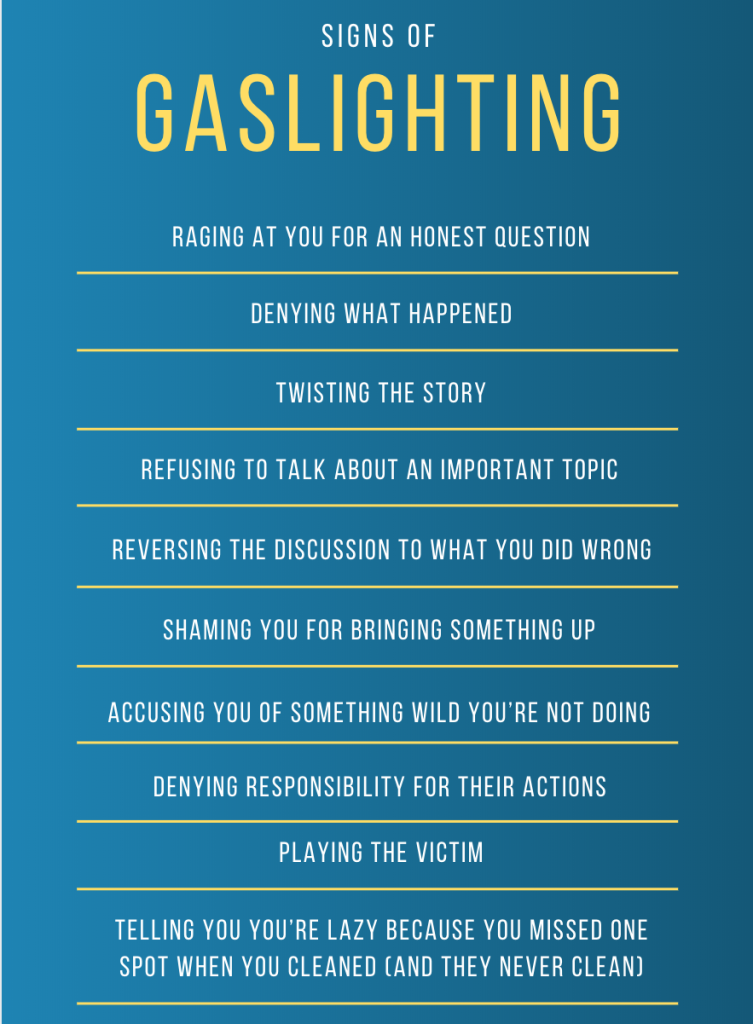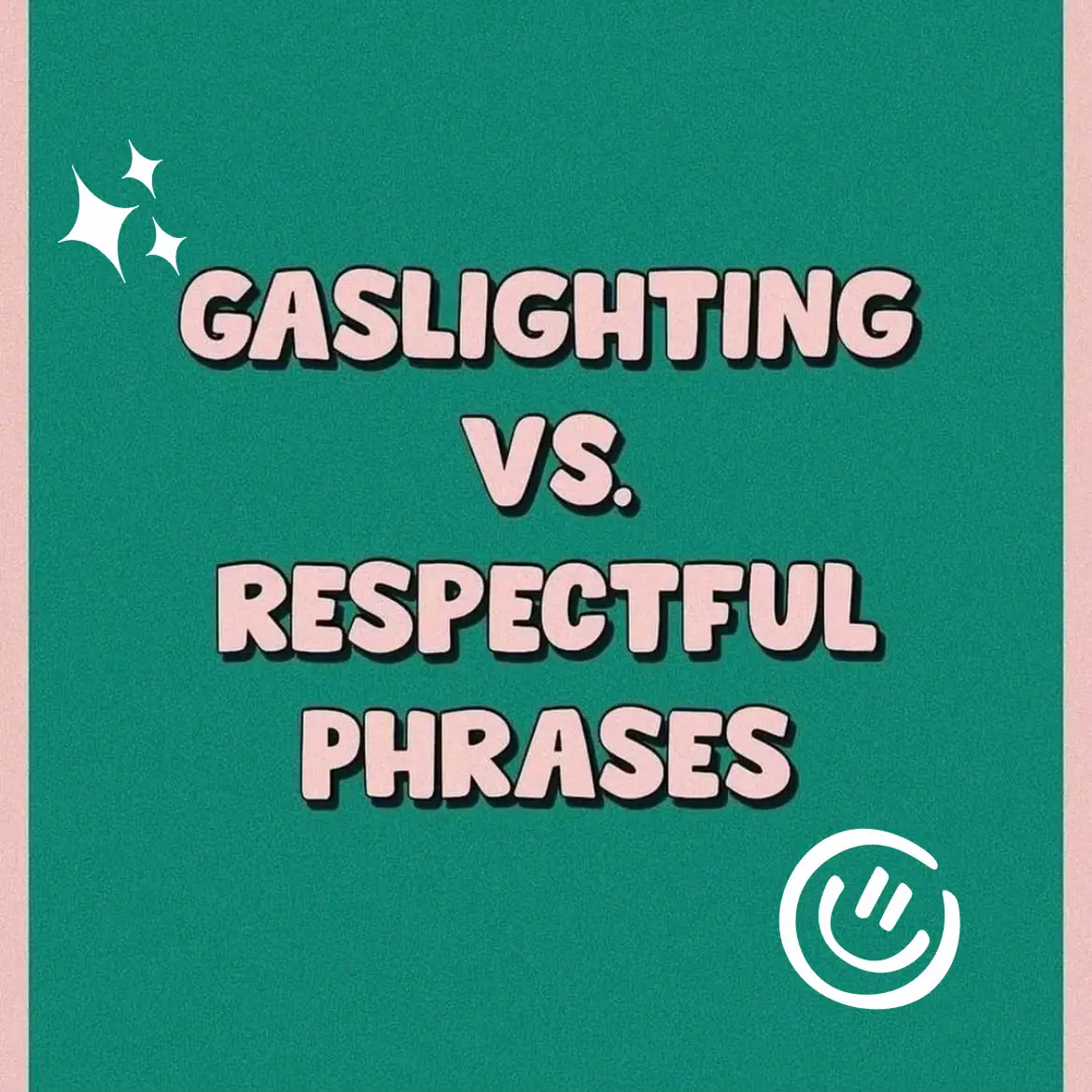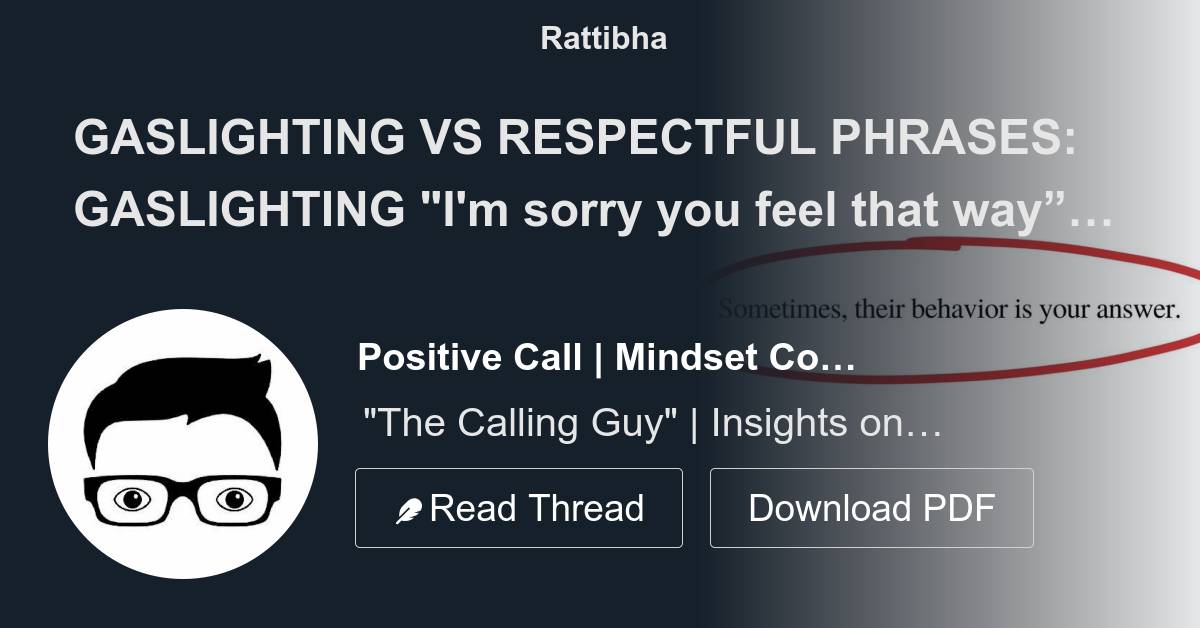Have you ever found yourself questioning your own reality after a conversation? Maybe someone told you that you're "too sensitive" or that "it didn't happen the way you're saying." Welcome to the world of gaslighting vs respectful phrases, folks! Gaslighting is a sneaky form of emotional manipulation that can leave you feeling confused, self-doubting, and even questioning your own sanity. But don't worry, we're here to break it down for you and help you spot the difference between harmful words and those that truly build healthy relationships.
Let's be real – words have power. They can either uplift someone or tear them down. In today's fast-paced world, understanding the impact of our language is more important than ever. Whether it's in romantic relationships, friendships, or even workplace interactions, recognizing gaslighting phrases versus respectful ones can make all the difference in maintaining strong, positive connections.
This guide isn't just about pointing fingers at toxic behavior; it's about empowering you with knowledge. We'll dive deep into what gaslighting looks like, how it affects people, and most importantly, how to counter it with respectful communication. So grab a cup of coffee, sit back, and let's explore the fascinating world of words and their impact on human relationships.
Read also:Wndr Museum San Diego Photos A Captivating Journey Through Art And Wonder
What Exactly is Gaslighting?
Gaslighting isn't just some trendy buzzword; it's a real psychological tactic used by manipulators to gain control over others. Imagine this – your partner says something hurtful, and when you call them out on it, they respond with, "I didn't say that" or "You're always so dramatic." Sound familiar? That's gaslighting in action.
This sneaky behavior makes the victim question their own memory, perception, and even sanity. It's like being in a hall of mirrors where nothing feels real anymore. Over time, the person being gaslit may start to believe they're the problem, leading to self-doubt, anxiety, and even depression.
But here's the kicker – gaslighting isn't limited to romantic relationships. You can encounter it in friendships, family dynamics, or even at work. The key is recognizing the signs early on and taking action to protect your mental well-being.
Common Gaslighting Tactics
Gaslighters are pros at twisting reality to suit their narrative. Here are some common tactics to watch out for:
- Denial: "I never said that!"
- Blame-shifting: "You're just too emotional!"
- Minimization: "It's not a big deal; you're overreacting."
- Confusion: "I don't know what you're talking about!"
- Projection: Accusing you of the very behavior they're guilty of.
These tactics are designed to make you doubt your own reality, and they're incredibly effective if you're not aware of them. The good news is that once you recognize these patterns, you can start setting boundaries and protecting yourself from emotional manipulation.
Why Gaslighting is So Dangerous
Gaslighting isn't just annoying – it's downright dangerous. Over time, it can erode your self-esteem, make you question your own judgment, and even lead to serious mental health issues. Think about it – if someone constantly tells you that your feelings aren't valid or that you're imagining things, you're bound to start believing them.
Read also:Al Hayat Home Care Your Trusted Partner In Home Healthcare
This form of emotional abuse can have long-lasting effects, including anxiety, depression, and even post-traumatic stress disorder (PTSD). Victims often struggle with trust issues and find it hard to form healthy relationships in the future. It's like being trapped in a never-ending loop of doubt and confusion.
But here's the silver lining – awareness is power. By understanding the impact of gaslighting, you can take steps to break free from its grip and start rebuilding your confidence. It's not about blaming the gaslighter; it's about empowering yourself to create healthier relationships.
How Gaslighting Affects Mental Health
The psychological toll of gaslighting is no joke. Studies have shown that victims often experience:
- Increased anxiety and stress levels
- Decreased self-esteem and confidence
- Difficulty trusting others
- Chronic feelings of self-doubt
- Depression and emotional numbness
These effects can linger long after the gaslighting stops, making it crucial to address the issue head-on. Seeking professional help, whether through therapy or counseling, can be a game-changer for those trying to heal from the emotional scars of gaslighting.
Respectful Phrases: The Antidote to Gaslighting
Now that we've explored the dark side of gaslighting, let's talk about the bright side – respectful communication. Respectful phrases are all about acknowledging someone's feelings, validating their experiences, and fostering open, honest dialogue. It's like giving someone permission to be human without judgment or manipulation.
When you use respectful language, you're saying, "I see you, I hear you, and I value your perspective." It creates a safe space for people to express themselves without fear of being dismissed or belittled. And let's be honest – who doesn't want that kind of environment in their relationships?
Respectful communication isn't just about being nice; it's about building trust, understanding, and mutual respect. It's the foundation of any healthy relationship, whether romantic, platonic, or professional.
Examples of Respectful Phrases
Here are some examples of respectful phrases that can make a world of difference in your interactions:
- "I hear what you're saying, and I understand why you feel that way."
- "Let's talk about this and find a solution together."
- "I appreciate your perspective, and I want to understand where you're coming from."
- "I'm sorry if I hurt your feelings – that wasn't my intention."
- "How can we work through this together?"
These phrases may seem simple, but their impact is profound. They show that you value the other person's feelings and are willing to work through conflicts in a healthy, constructive way.
How to Spot Gaslighting in Relationships
Gaslighting can be tricky to spot, especially if you're in the middle of it. But there are some red flags to watch out for:
- Your partner or friend consistently denies saying or doing things that you clearly remember.
- They make you feel like you're "too sensitive" or "overreacting" to situations.
- You find yourself constantly second-guessing your own judgment or memory.
- They blame you for their behavior or actions.
- You feel like you can't trust your own perception of reality.
If any of these sound familiar, it might be time to take a closer look at the dynamics of your relationship. Trust your gut – if something feels off, it probably is. And don't be afraid to reach out for support from friends, family, or professionals.
Setting Boundaries Against Gaslighting
Once you've identified gaslighting behavior, the next step is setting boundaries. This can be tough, especially if the person is someone you care about. But remember – your mental health and well-being are non-negotiable.
Here are some tips for setting boundaries:
- Stay calm and assertive when addressing the behavior.
- Use "I" statements to express how their actions make you feel.
- Be clear about what behaviors you won't tolerate.
- Seek support from trusted friends or family members.
- Consider professional help if the behavior continues.
Setting boundaries isn't about being mean or controlling; it's about protecting yourself and maintaining healthy relationships. And let's be honest – anyone who truly cares about you will respect your boundaries.
The Importance of Respectful Communication
Respectful communication is the backbone of any healthy relationship. It's about creating a space where both parties feel heard, valued, and understood. When you communicate respectfully, you're saying, "I respect you, and I want to work through this together."
But here's the thing – respectful communication isn't just about using the right words. It's about listening actively, acknowledging emotions, and being willing to compromise when necessary. It's about treating others with the same respect and dignity you'd want for yourself.
In a world where miscommunication and misunderstandings are rampant, respectful communication stands out as a beacon of hope. It's the key to building strong, lasting relationships that can weather any storm.
Benefits of Respectful Communication
Using respectful phrases in your interactions comes with a host of benefits:
- Improved trust and understanding between people
- Reduced conflict and misunderstandings
- Enhanced emotional well-being for everyone involved
- Stronger, healthier relationships
- Increased empathy and compassion
These benefits aren't just limited to personal relationships; they extend to professional settings as well. Employers who foster respectful communication in the workplace often see higher employee satisfaction, productivity, and retention rates.
Building Healthy Relationships Through Respect
At the end of the day, healthy relationships are built on trust, respect, and open communication. Gaslighting may seem like an easy way to gain control, but it ultimately destroys relationships from the inside out. Respectful communication, on the other hand, strengthens bonds and creates a foundation for growth and understanding.
So how do you build healthy relationships? Start by being mindful of your own communication style. Are you using gaslighting tactics without realizing it? Are you open to feedback and willing to change? These are important questions to ask yourself.
And don't forget – building healthy relationships is a two-way street. It requires effort from both parties to create an environment where everyone feels safe, valued, and respected.
Practical Tips for Building Healthy Relationships
Here are some practical tips for building healthier relationships:
- Practice active listening and validate others' feelings.
- Use "I" statements to express your own emotions and needs.
- Be open to feedback and willing to make changes when necessary.
- Set clear boundaries and respect others' boundaries.
- Seek professional help if needed to work through deeper issues.
Building healthy relationships takes time and effort, but the rewards are well worth it. When you prioritize respect and understanding, you create connections that can stand the test of time.
Final Thoughts: Gaslighting vs Respectful Phrases
As we wrap up our exploration of gaslighting vs respectful phrases, it's clear that words matter – a lot. Gaslighting may seem like a quick fix for conflict, but it ultimately leads to destruction and pain. Respectful communication, on the other hand, fosters trust, understanding, and growth in relationships.
So here's the challenge – take a moment to reflect on your own communication style. Are you using gaslighting tactics without realizing it? Are you open to incorporating more respectful phrases into your interactions? Remember, every word you say has the power to either build someone up or tear them down.
And don't forget – you're not alone in this journey. If you're struggling with gaslighting or need help building healthier relationships, there are resources available to support you. Whether it's therapy, counseling, or even just talking to a trusted friend, there's no shame in seeking help when you need it.
So go forth, my friends, and spread the word about the power of respectful communication. Together, we can create a world where everyone feels seen, heard, and valued. And isn't that what life's all about?
Table of Contents
- What Exactly is Gaslighting?
- Why Gaslighting is So Dangerous
- Respectful Phrases: The Antidote to Gaslighting
- How to Spot Gaslighting in Relationships
- The Importance of Respectful Communication
- Building Healthy Relationships Through Respect
Remember, the choice is yours – will you let gaslighting tear down your relationships, or will you choose the path of respect and understanding? The ball is in your court, folks!


